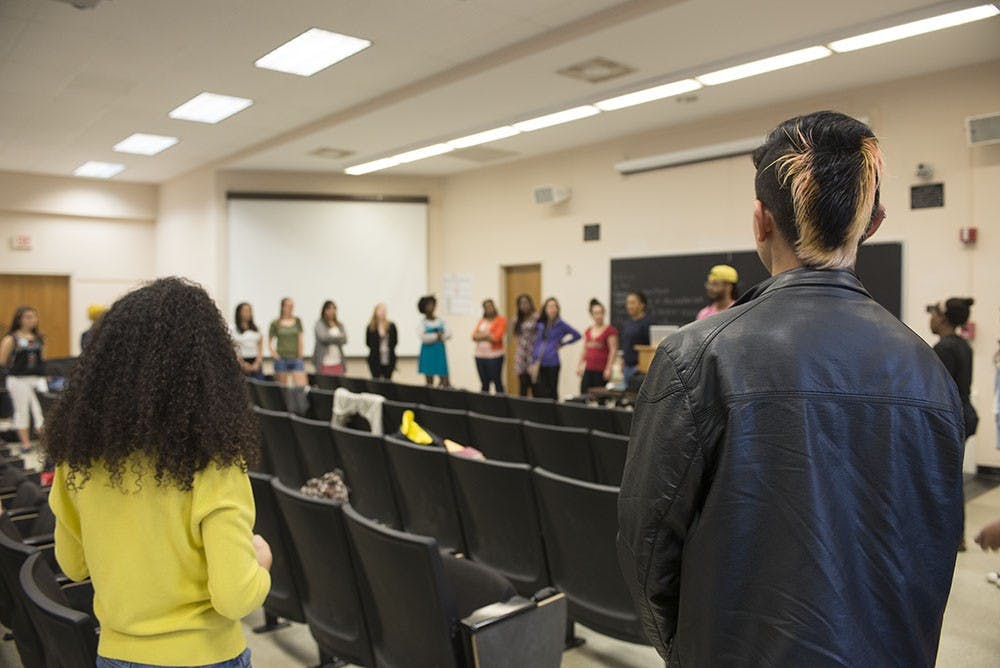U.Va. Students United held an open general assembly Thursday evening, titled “Reconstructing Our University,” about the different issues present at the University. Issues concerning AccessUVa, establishing a living wage and the acceptance of students who are not in the country legally were discussed.
The floor was open for general discussion and attendees voted on the different changes that would later be proposed to Student Council. The attendees later broke into five groups to discuss possible courses of action for effecting change.
The group first proposed the return of AccessUVa’s no-loans policy for those in the lowest income bracket, increasing the minimum annual salary for qualification and creating an office to support those students who receive aid. The increased tuition with simultaneously decreasing aid may be related to the declining representation for certain races, said fourth-year College student William Proffitt.
“The declining black population at U.Va. is not representative of the percentage present in the state of Virginia,” Proffitt said. “One reason we believe this is the case is because middle income blacks cannot afford to come to U.Va.”
The issues may stem from more than just the financial constraints, third-year Architecture student Ashley Blackwell said.
“It’s also about the way U.Va. is perceived,” Blackwell said. “There’s a culture of affluence that is put on a pedestal. There’s a lot of focus on the aesthetics of the University.”
The lack of socioeconomic diversity can make it difficult for students to adapt, said fourth-year College student Stephanie Montenegro.
“There is a lack of a support system for AccessUVa recipients,” Montenegro said. “It limits the community that we can create for ourselves. It took me three years to find the kind of people to have the conversation with.”
The second resolution proposed involved increasing the minimum wage to a “living wage.” A majority of the assembly was in favor of a contractor parity and keeping an audit clause when renewing the contract with Aramark, the company that provides the University food.
“Coming from a low income background, I can understand what it was like,” Blackwell said. “I want to take action so that workers here have a living wage.”
The final proposition involved extending acceptance to the University to students who have been Deferred Action for Childhood Arrivals approved. Many Ivy League schools have admitted these students, said fourth-year College student Ivonne Navarro.
“DACA gave those that qualified for the status the opportunity to work legally, go to school and have opportunities,” Navarro said. “There’s security that they won’t be deported as long as they keep up with requirements.”
Conversations like these are what Student Council hopes to see more from the student body, said Abraham Axler, first-year College student and Chair of the Representative Body.
“Listening to student concern is StudCo’s whole role,” Axler said. “It’s a pleasure to go into an engaged group of students and hear what they’re thinking to try to work for the resolution.”
The students hope to bring new change to the University to create a better community.
“At the end of the day, I do feel proud of being here, but there are so many things that we can work to change,” Navarro said.
Students United will be meeting again next Thursday to create the formal resolutions to present to Council the following Tuesday.
“I want to be able to give back monday to the University knowing that [it] is in a better place, doing better than it was when I was going here,” Montenegro said.







